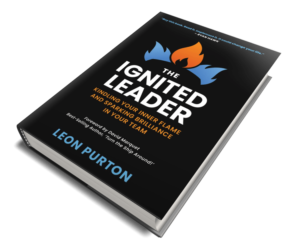
The 9 lies and why we continue to believe them
Ashley Goodall and Marcus Buckingham co-authored a book ‘The Nine Lies about Work: A Freethinking Leaders Guide to the Real World”.
The authors chose an inflammatory title, deliberately. ‘The Nine Lies about Work’ focuses on common adages that are held up as certainties, that when examined against the real world simply aren’t true. One adage that does hold true is — ‘a lie is half way around the world before the truth even has it’s pants on’. For this reason they discuss lies and these lies are the ones you will consistently hear in the workplace or as a leader.
This is a unique perspective, how often have you heard;
- People need and want feedback, or
- Work-Life balance matters, or
- You must have a plan.
It turns out, when examined against the real world these statements are not absolute. In fact, in many cases they are wrong. They are lies.
As an example:
I wrote recently about the importance of having a team of pointy people. That a team of people with exactly the same skills is useless at navigating new problems and issues.
It takes pointy people to lead through the problem. If we have a team of generalists, people who focus at gaining thin but wide information, it will limit the diversity of ideas they have to mingle (I spoke about Idea Sex).
So why is it that we promote and prioritise breadth so much? Ashley Goodall and Marcus Buckingham call this out as a lie.
This, amongst other lies, are discussed below.
How to Transform from a Follower into a Leader
Why leaders are pointy when they need to be medium.com

What is really important?
How do you find the truth’s amongst the mass of information and rhetoric?
I was once told that the best investment for the future would be in Lithium. The rise in Solar and Electric Vehicles requiring batteries would create a demand signal. I should get in now. Sounds like well grounded advice – do you have Lithium?
So far that recommendation has proven inaccurate. It may be that we will see a rise at some point, but at the moment the production is outweighing demand. It may well be replaced with a better technology and lose its value as power storage.
Did it make this a lie? I am not sure yet.
But similar to this, many of the certainties from earlier management and leadership philosophy have not held up to the test of time — yet.
Marcus and Ashley have identified that some of these aren’t currently true, or may never have been true at all. It is difficult to make distinction between important and not important, but what I will say is, conflicting opinion is stimulating.
The following consist of information from this Forbes article from Kathy Caprino and my own reflections on their work;
Lies, Lies, Damnable Lies
- People care which company they work for
Yes, this seems odd as a lie, as generally people do feel some connection to their company. But, say the authors, while what we may care about starts as the ‘company’ it soon becomes something else. Local experiences — how we interact with immediate colleagues — trumps company and uniform ‘culture’ every time. When people choose not to work somewhere, that somewhere is not the company but with the team. Data shows people might care which company they join but they don’t care which company they work for. They care which team they are on. An adage that seems to hold true here is ‘People don’t leave bad jobs, they leave bad bosses’. For this reason we all have a role to play in creating teams of choice. Good people make good work mates. - The best plan wins
When you join a company in a leadership role, the first thing you are expected to do is create a plan. You may be asked what your 90-day plan is and how it fits into the company strategy— potentially during the interview or promotion panel. Plan the work, then work the plan. If your strategy is optimal, your knowledge of the resources exceptional, success will follow. Yet things rarely turn out the way you hope. In the real world, change happens fast. The reality is that most plans, especially those created in large organisations, are overly generalised, quickly obsolete and frustrating to those asked to execute them. It’s better to coordinate your team’s efforts in real time, relying on the informed, detailed intelligence of each unique team member. But how do you do that? You use intent and encourage “I intend” language. - The best companies cascade goals
Goals are everywhere at work. Team members look at their leaders’ goals, leaders look at the company goals, everyone has a set of goals designed to help advance the overall goals. SMART, KPIs, BHAG (Big Hairy Audacious Goals), massive amounts of time and money are invested in goal setting. Marcus and Ashley point out that Deloitte spends $450 million a year on setting, tracking and evaluating every year and Accenture spends double this. Goals are about stimulating the performance of your people in the right direction. The problem is, in the real world there is stuff to be done. Work is work, goals are not. Goals can be good, they just need to be set voluntarily. “Your goals define the dent you want to make in the world.” The best companies don’t cascade goals, they cascade meaning. I believe there is merit and benefit in the V2MOM strategy used by Salesforce, where you describe your role in meeting the required outcomes. You describe your goals with an understanding of the bigger picture. Your performance is then assessed against those measures of success. You define your impact. - The best people are well-rounded
The one commonality in high-performing teams that stands out time and again when you analyse the data is the employee’s sense that they have the chance to use their strengths every day at work. “Optimising individual work strengths is the master lever for high-performance teams. Pull that lever, and everything else is elevated; fail to pull it and everything else is diminished.” So why do organisations fail to help people pinpoint and contribute within their unique strengths? Instead, they measure against a standardised performance model and grow us towards it. They think the best people are well-rounded. In the real world, each high performer is unique and distinct and excels because that person has understood his or her uniqueness and cultivated it intelligently. The best teams are full of pointy people. Each helping the others look around the next corner. - People need feedback
“It is a truth universally acknowledged that a millennial in possession of a job must be in want of feedback.” Feedback is a good thing and the more frequent and candid it is, the better. Wrong. The truth is that people need attention and when you give it to them in a safe and non-judgemental environment, they stay and play and work. Yes, feedback is attention, and research shows even negative feedback has some positive impact over no feedback. But negative feedback doesn’t enable learning, in fact it inhibits it. Positive attention, meanwhile, is 30-times more powerful than negative attention in creating high performance. Pay attention to what’s working for your people now and build on it. For this reason Mentor type relationships are far more effective at growing high-performance teams than boss-worker relationships. Show your investment in the team members, include feedback as part of that, but create the right dynamic. - People can reliably rate other people
Talent reviews. Performance ratings. Annual feedback. We all know that managers and their teams hate them. In the real world, none of the methods nor meetings, competencies and carefully calibrated rating scales work. We try, but in the end, the system is manipulated over time. One of the vital flaws is that is is based on the belief that people can reliably rate other people. They can’t, as copious research shows. Everyone displays their own rating pattern. The rating you get tells you more about the rating pattern of your manager than about your performance. Mentoring session create a far more valuable dynamic for improvement and performance management. Yes, they take more energy and purposeful commitment, but they better inform you of someone’s capabilities and capacities. If you aren’t mentoring someone you probably don’t even know your own. - People have potential, some more than others
As a leader you will inevitably have to rate your people on their potential and put them in a grid somewhere. Are they high or low potential? This is a ranking not often used in my environment (Hi-Po or Lo-Po), but the term potential is used. In many organisations according to the Authors, “high potential is the corporate equivalent of Willy Wonka’s Golden Ticket: you take it with you wherever you go and it grants you powers and access denied to the rest”. Potential, however, is not some finite amount in each person. Evidence shows that the ability to learn exists in all of us, it shows up differently in each of us and none of us will ever be able to rewire our brains to excel at everything. To say you have potential simply means you have the capacity to learn, grow and get better like every other human being. An individuals capacity is primarily defined by the environment and opportunities afforded them. As a leader, you influence both of these. - Work-life balance matters most
If there’s a phrase that has been used in HR more than most in recent years it’s work-life balance. We lose ourselves in work and rediscover ourselves in life. We survive work and live life. The assumption is that work is bad and life is good. The problem is balance. In the real world, does anyone find balance? Striving for it can be as hard as the work we are blaming. Balance is just a coping strategy. If, for some reason, you find yourself realising that you currently ‘have work-life balance’, how long does it last? You’re like “Everyone freeze, don’t change anything”, it doesn’t last. The key is to find energy in what you do; at work or in life. You are never focused on balance, you are focused on the energy and stress required and associated with work. You are biologically conditioned to move away from stress, when you move towards it you drain energy. What we really wrestle with is not work and life, but love and loathe. Don’t seek balance, seek energy (fill you bucket at work). You can restructure your approach to work to have dramatic results. - Leadership exists
Leadership does not really exist, and if it does, it is fleeting. If leading were easy, there would be more good leaders. There is not a particular set of qualities that leaders have. Every leader has obvious shortcomings. When you take away the definitions of leadership as a thing and look at people you regard as leaders in the real world, you find exception after exception. The only determinant of whether anyone is leading is whether anyone is following. So the question is, why do we follow? You follow because of the certainty associated with a outcome, the belief that it is achievable and the knowledge of your team and their abilities — created through active leadership. It must be active, because it does not persist. The true currency of leadership, is human engagement.
How To Become a Better Mentor in Three Simple Steps
And why you should medium.com

A reflection
As you go into work, be it in the office, or on the site or somewhere else. Know that you do so for some reason that is important to you. For some it is consistent income for other priorities, for others it is your work colleagues, for a few of you it is the love of the work. For others it is our sense of progression.
In each circumstance, you make a conscious decision to be there. During your time at work, you will hear adages and mantra’s about what it takes to be successful. Some of them may have elements of truth and others may be off track. The test for you is too hold them up against your work and experience — and work out if that is valuable to you.
I remember hearing about the time that a new starter was told; “don’t worry about the training, we do it this way on the site”. Three weeks later he had lost his arm. This is an extreme example, but one where something held up as true turned out to be a lie.
So reflect on these ‘lies about work’, are there any others that you have heard and seen to be a lie?
Let me know.
Stay safe and keep smiling,
Leon.
How to trick your brain to more success
Six steps to an influenced outcome medium.com
